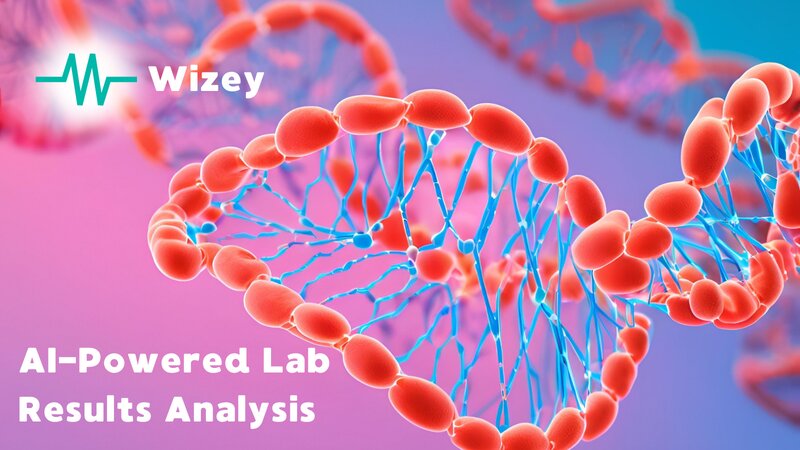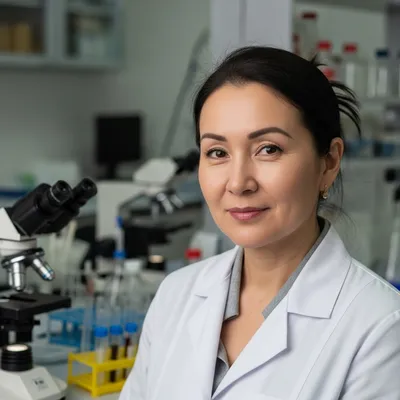🧬 The Symphony of You: How Personalized Medicine is Composing the Future of Health

For centuries, medicine has operated on a principle of averages. A treatment that worked for the “average” patient was prescribed to all, a statistical approach that left far too much to chance. But we are not averages. Each of us is a unique biological symphony, a complex interplay of genetics, environment, and lifestyle. Today, we stand at the dawn of a new era: personalized medicine, a revolutionary approach that tunes into your individual composition to conduct a healthcare strategy composed just for you.
This isn’t science fiction. This is the clinical reality of 2025-2026, a paradigm shift from reactive, generalized treatment to proactive, precision care. The global precision medicine market is a testament to this revolution, projected to soar to over $400 billion by 2034. Why? Because it works. Clinical studies now show that personalized therapies can achieve response rates as high as 87%, a stunning improvement over conventional methods.
Let’s pull back the curtain and explore the science that is making this future possible.
🔬 The Genomic Revolution: From Blueprint to Action
The journey into personalized medicine began with the monumental task of mapping the human genome. What was once a decade-long, billion-dollar endeavor can now be done in a matter of hours for a fraction of the cost. This accessibility has unlocked the human blueprint, allowing us to read the genetic code that influences everything from your risk of heart disease to how you metabolize your morning coffee.
This genetic insight is the bedrock of pharmacogenomics, a field dedicated to tailoring drug treatments to your DNA. With over 75,000 genetic testing kits now available, your doctor can:
- Predict Drug Response: By analyzing specific genes, such as
CYP2C19, we can predict whether a heart medication like clopidogrel will be effective for you, or if an alternative is needed. - Optimize Dosage: For drugs with narrow therapeutic windows, like the blood thinner warfarin, a genetic test can determine the precise dose that is both effective and safe, minimizing the risk of dangerous side effects.
- Avoid Adverse Reactions: Genetic screening can identify individuals who are likely to have severe reactions to certain drugs, such as chemotherapy agents, allowing for safer, alternative treatments.
This is a far cry from the trial-and-error methods of the past. It’s a data-driven approach that puts your unique biology at the center of the prescription pad.
🤖 AI: The New Medical Virtuoso
If our DNA is the sheet music, then Artificial Intelligence (AI) is the virtuoso conductor. The sheer volume of data generated by genomics, proteomics, and metabolomics is far too complex for the human mind to process alone. AI algorithms, however, can sift through these mountains of information to identify subtle patterns and make predictions with breathtaking accuracy.
As we’ve explored before, AI simplifies the understanding of medical tests, but its role in personalized medicine is even more profound. AI is now being used to:
- Accelerate Drug Discovery: By simulating molecular interactions, AI can identify promising drug candidates and predict their efficacy before they ever enter a lab, drastically cutting down the time and cost of development.
- Enhance Diagnostics: AI-powered tools are analyzing medical images with superhuman precision, detecting cancers and other diseases at their earliest, most treatable stages.
- Create Predictive Models: By integrating genetic data with lifestyle and environmental factors, AI can predict your risk for a wide range of conditions, from diabetes to depression, enabling proactive interventions long before symptoms appear.
🎯 Precision Oncology: Rewriting the Cancer Story
Nowhere is the impact of personalized medicine more dramatic than in the field of oncology. Cancer is not one disease, but thousands of unique diseases, each driven by a specific set of genetic mutations. Precision oncology treats the mutation, not just the location of the tumor.
The results are transformative. In non-small cell lung cancer, for example, patients with a specific EGFR mutation who receive targeted therapies have a 70% response rate and a median survival of 24 months—a remarkable improvement over traditional chemotherapy. This is the power of hitting the target with a laser, not a sledgehammer.
The future is even more exciting, with the advent of liquid biopsies. These simple blood tests can detect tiny fragments of tumor DNA circulating in the bloodstream, allowing for non-invasive cancer detection and real-time monitoring of treatment response.
🧬 The Digital You: A Connected Health Ecosystem
The revolution doesn’t stop at the clinic door. The rise of wearable technology and digital health platforms is creating a continuous stream of personalized data. Your smartwatch, which tracks your heart rate, sleep patterns, and activity levels, is now a vital part of your health record.
This ecosystem of connected devices allows for:
- Real-Time Monitoring: For chronic conditions like diabetes or hypertension, continuous monitoring allows for fine-tuned adjustments to treatment plans, keeping you in the optimal health zone.
- Digital Therapeutics (DTx): Clinically validated software programs are now being prescribed to treat conditions ranging from insomnia to ADHD, offering personalized interventions delivered directly through your smartphone.
- Microbiome Analysis: Your gut health is a key part of your overall well-being. New digital tools can analyze your unique microbiome and provide personalized dietary recommendations to optimize it.
⚖️ The Road Ahead: Challenges and Ethical Horizons
The path to a fully personalized future is not without its obstacles. We must navigate complex challenges around:
- Data Privacy: How do we protect the most sensitive information of all—our genetic code?
- Equity and Access: How do we ensure that these revolutionary treatments are available to everyone, not just the wealthy?
- Education: How do we train the next generation of clinicians to be fluent in the language of genomics and data science?
symphony in progress
Personalized medicine is more than just a new set of tools; it’s a new philosophy of care. It’s a move away from the general and toward the specific. It’s the recognition that the most powerful medicine is the one that is composed in harmony with your unique biology. The symphony of you is still being written, and with every new discovery, we get closer to a future where healthcare is truly, and profoundly, personal.





